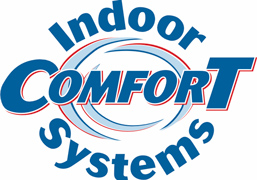
Ever done a double take when you took a look at your last energy bill? Although high energy bills can be the result of intense weather events, persistently high bills can also indicate an inefficient HVAC system or your home is misusing energy through other means, like drafty windows or poor insulation.
One of the easiest ways to determine whether your home is wasting energy is by getting a home service professional to complete a home energy audit, also referred to as a home energy assessment. Keep reading to learn more about home energy audits, including what they are and their benefits.
What Is a Home Energy Audit?
An energy audit is a comprehensive inspection of how much energy your home consumes and whether – and where – your home may be losing or wasting energy. An inspector will go through past energy bills while completing an energy audit to figure out where energy is being wasted and how much.
The general goal of an energy audit is to help homeowners save money on their energy bills by recommending energy-efficient renovations, which may include replacing your existing HVAC system, installing new insulation, plugging up leaks, or replacing drafty windows.
Over the course of the energy assessment, the auditor carries out an inspection of the outside and inside of your home. The auditor completes a blower door test on doorways, windows and fireplaces to figure out if there are air leaks in your home. They’ll also check your home’s HVAC system, including the ductwork, the water heater, and the insulation in your attic. Exhaustive assessments may also include checking your current lighting system.
Benefits of a Home Energy Audit
It can be difficult for the typical homeowner to be sure how efficient their home is compared to other similar homes in their area. However, local energy companies often supply information about where your home is ranked in comparison to similar homes and whether it’s more efficient, about average, or inefficient in contrast with your neighbors’ homes. This is a good starting point to determine if you need an energy audit scheduled.
A few of the benefits of a home energy audit include:
Recognizing How Efficient Your Home Is
It’s good to understand how efficient your home is and where you’re using up the most energy. For example, if your ducts are leaking air, it can cause a large increase in your energy bills and excessive wear and tear on your HVAC system since it has to work longer to completely heat or cool your home.
Making Energy-Efficient Updates
An energy audit should expose where you need to make energy-efficient improvements to conserve energy and reduce utility bills. This may include replacing old weatherstripping or getting a new energy-efficient furnace.
Improving Health and Safety
Permitting air to slip into your home through doors and windows, or due to a lack of insulation can cause extra moisture to form, which could negatively influence your home’s humidity levels or encourage mold. This can exacerbate health conditions, especially for people suffering from asthma or allergies.
Adding to Your Home’s Retail Value
Energy-efficient homes are preferred by homebuyers. You can sell your home much faster or for more money by showing possible buyers that it’s energy efficient.
How to Perform an Energy Audit of Your Home
Although performing an energy audit on your own will not be as detailed as calling a professional, it’ll offer you a general idea of how energy efficient your home is. If you don’t discover any issues during the DIY test, then you potentially don’t need to hire a professional. Try this step-by-step checklist:
- Inspect your HVAC system. Broken ducts can lose nearly 20% of conditioned air, resulting in more expensive energy bills and increased wear and tear on HVAC equipment. If you discover leaks, use duct tape to seal them. If your HVAC equipment is old and wearing down, upgrading to a new system can save you a substantial amount on your energy bills. In some cases, it is better to hire a reputable HVAC company to inspect your system.
- Check for air leaks. Air leaks on average can increase your energy bills by 10 to 20%. Inside, look for air leaks in areas where there is a draft, including along the edge of flooring and close to baseboards and electrical outlets. Outside, you can look for air leaks around the home’s foundation, siding and mortar. Plug, caulk or seal any air leaks to save money.
- Examine insulation. If your home is older, it could mean your insulation is too. If you can see the joists, you likely need more insulation.
- Check the ventilation. Check that all of your kitchen and bathroom exhaust fans are functioning properly, and look for evidence of rot or moisture.
Contact Indoor Comfort Systems HVAC for a Professional Energy Audit
If you are interested in professional help finding out how energy efficient your heating and cooling equipment is, call the HVAC experts at Indoor Comfort Systems HVAC today. We’ve proudly serviced the residents of Croydon with quality home services for years. Contact us today to set up an appointment.
